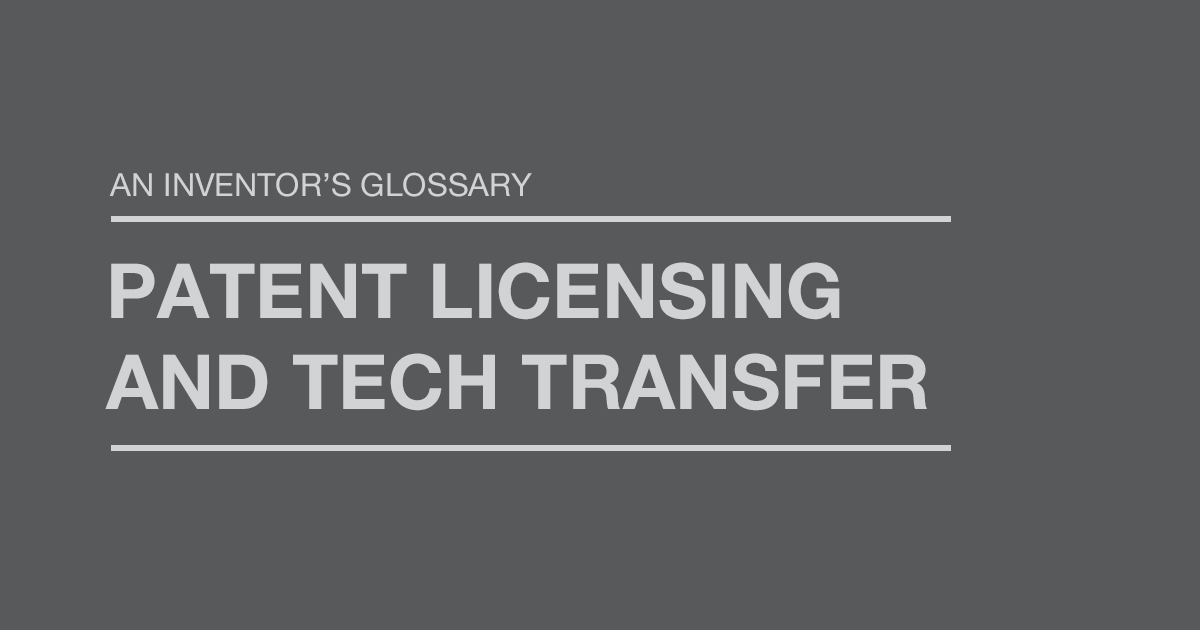An Inventor’s Glossary: Patent Licensing and Tech Transfer

Have you ever wondered why patent licensing matters? Maybe you’ve heard the words “tech transfer” and weren’t sure exactly what that means. We’ll define both terms below and explain why they are critical to American inventors.
PATENT LICENSING
If you follow our blog, you’ve seen posts about patent licensing like this one covering why universities matter. But what is patent licensing?
Simply put, patent licensing is the leasing of patent rights to a third party. The original patent recipient retains ownership and receives a set royalty on products created with the patent.
There are two primary reasons why patent licensing matters to inventors:
- Licensing provides a revenue stream to inventors who don’t have the means to produce the patented product themselves.
- Licensing allows inventors to focus on what they do best – creating new innovations and breakthroughs – while leaving manufacturing and sales to others.
As illustrated in this IP Watchdog article, licensing at times can be a “safer bet” financially than manufacturing for inventors.
TECH TRANSFER
Technology transfer is the process of transferring scientific findings from one organization (such as a university research lab) to another (such as a private sector company) for the purpose of further development and commercialization of those findings.
Why does tech transfer matter? Imagine that you are a researcher at an academic institution and your specialty is in finding cutting-edge solutions to life threatening diseases. After three years of costly and time-intensive testing you’ve created a cure that will save hundreds of thousands of lives each year. The best, and likely only, way to ensure that your cure can reach the people that need it most is by transferring that research and any necessary technology to a firm that specializes in developing products and bringing them to market. That’s tech transfer.
Additionally, tech transfer will allow your organization to recoup costs and bring in revenue that will allow your research into new cures to continue. Without this process, your life-saving work ends.
Interested in reading more “An Inventor’s Glossary” blog posts? Click here to learn about Section 101 and click here to learn about Demand Letters and Inter Partes Review.
Learn more about how you can support intellectual property rights by signing up for our email newsletter here.
